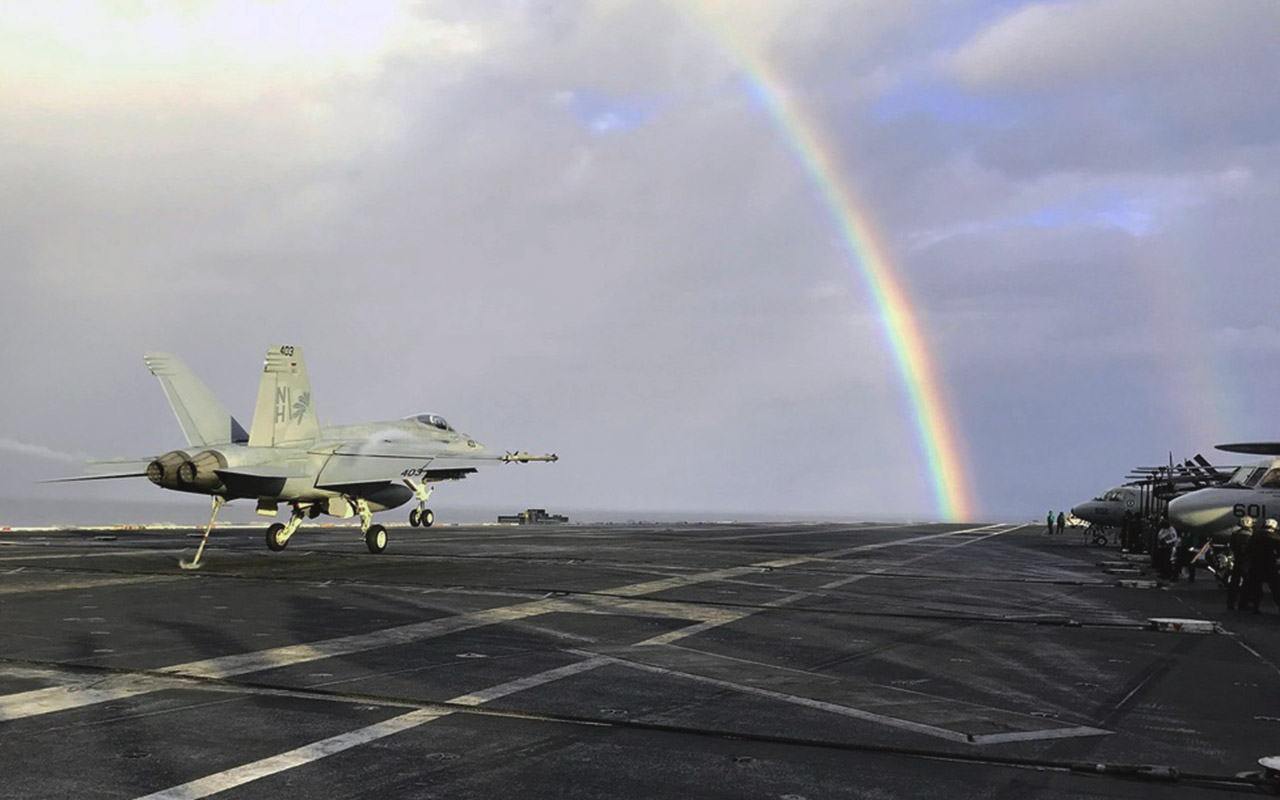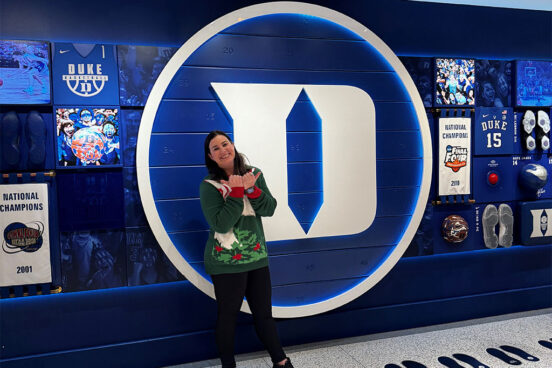Duke Weekend Executive MBA Student Blog

Reflections on Military Service and Pursuing an MBA
A small percentage of Americans have served in the military, and it’s an honor and a privilege to say that I’m one of them, alongside heroes like Tim Myland and Tim Miller—two great guys with the best of intentions.

Imagine walking into the JB Duke Hotel to start the Weekend Executive MBA program, and the first conversation you have goes something like this:
“Are you here for the Fuqua program?”
“Yes, my name is Tim, and you are?”
“Hey, my name is also Tim. What do you do, Tim?”
“I was a pilot in the Marine Corps.”
“Oh, no way! I was a pilot in the Navy—F/A-18. What was your platform?”
“I flew F/A-18s as well!”
“Oh, and this is my wife, Sarah. Sarah, come meet another pilot named Tim!”
“Wait, my wife’s name is Sara…”
You read that right—the Weekend Executive MBA Class of 2025 includes two F/A-18 pilots, both named Tim M., both with wives named Sara(h). A coincidence refers to the accidental occurrence of events at the same time, but which seem to have some sort of connection. However, there’s a difference between coincidence and fate. While coincidence is just a matter of the right time and the right place, fate is something that is inevitable and is meant to be.

A lot of military veterans go through a cycle of wondering if their experiences were “fated” or meant to be—me included. As we celebrated Veteran’s Day this year, recognizing two veterans whose fate are now intertwined in the Weekend Executive MBA program seemed appropriate. The Class of 2025 is made up of 24% veterans, many of whom served during the wars in Iraq and Afghanistan.
The F/A-18 fighter pilot community is not large, and both Tim Miller and Tim Myland have many acquaintances in common. However, they did not know each other prior to arriving at Fuqua. I asked our two Tims about themselves and their path to Fuqua.
Our WEMBA class of 2025 is more than 20% veterans, why do you think that is?
Tim Myland: I think at large, MBA programs have an abundance of veterans. This is due to the experience many veterans have in the service and how that experience will best translate to the civilian world. The military provides the best leadership development training in the world. We (as veterans) just need to get a jumpstart on the jargon of the business world.
Tim Miller: I think the Executive program, specifically, at Fuqua appeals to a lot of veterans. The cohort is diverse and that is enhanced by the fact that everyone brings a certain level of contextual, seasoned life experience to the executive learning environment. From all walks of life, we are all looking to become better people and better leaders. Interacting with a cohort like that in an environment guided by excellence, trust, inclusion, and real grit creates something special. I feel incredibly lucky to be a part of that.
Why did you choose to pursue your MBA at Duke?
T. Myland: I chose Duke due to many recommendations from friends. I was also impressed by the quality of people I met at orientation. And of course, admissions counselor David Steber!
T. Miller: Everything from the application process to the residencies, the curriculum structure and format, the veterans benefits awareness—all of it has been world-class. I began to get that feeling about the institution during my application process and after Term 1, the feeling continues to get stronger. Following a detailed analysis of multiple academic programs and formats, I felt Fuqua offered a perfect ecosystem of diverse professional relationships, a renowned business acumen anchored in ethical leadership, and an undercurrent of grit that is infectious in the community. So far, I’ve been right!

What led you to pursue your MBA at this point in your career?
T. Myland: I have wanted to pursue an MBA since I was an undergrad. I knew that it was the next logical step after the military to jumpstart a civilian career. Furthermore, I have always admired the entrepreneurial spirit of many of my family members who run successful businesses. I wanted to have some skills to make that a reality for myself.
T. Miller: As my active-duty service came to an end, I had, at best, a grainy vision of what my career path was going to be moving forward. I’d always planned to attend graduate school when my time in the military came to an end. The longer I stayed, the more important that plan became.
I knew a few things for certain:
- I was passionate and could not be more ready to move into this next phase of my career.
- Mentorship, guidance and an immersion into the current business lexicon and fundamentals were critical to someone in my position.
- My experiences in the military enabled me to contribute a unique perspective to a collaborative learning environment focused on leadership.
What reflections do you have about the skillset you learned in the military and how you now use it in the business world?
T. Myland: I am still on active duty so I cannot answer that question definitively yet, but I can say that the skills of risk management, decision-making under stress, and leading by example should translate well to a civilian job.
T. Miller: There is certainly a long list, but they all build on a bedrock of grit. I am most reflectively thankful for how the various challenges enhanced my relationship with grit. Really hard, amazing things require passion and perseverance—remembering that (daily)—is the essence of grit. I am convinced every service member leaves with an extremely valuable appreciation of this truth.

What’s your favorite memory from your time in the service?
T. Myland: Being awarded the Charles Nelson Junior Officer Leadership Award at my fleet squadron. This was an award given to the Junior Officer in the fighter squadron who best epitomized leadership by example.
T. Miller: When I met my son for the first time. I was deployed while he was born, and he was our first. By the time I made it home, he was a little over 5 months old. It was magic.

What advice do you have for other veterans pursuing their MBA?
T. Myland: Work hard and be open to new experiences. Do not be afraid to network! It is imperative to build networking as a skillset. The military network is the greatest network in the world. Service members are always willing to help a fellow veteran out.
T. Miller: Do it! It has been everything I had hoped for and more.
As I reflect on the insights shared by Tim and Tim, I’m drawn to what they both said about being guiding lights. I love that they both support the skillsets veterans bring to the workforce and really encourage our classmates to recognize their valuable qualities. A small percentage of Americans have served in the military, and it’s an honor and a privilege to say that I’m one of them, alongside heroes like Tim Myland and Tim Miller—two great guys with the best of intentions.



